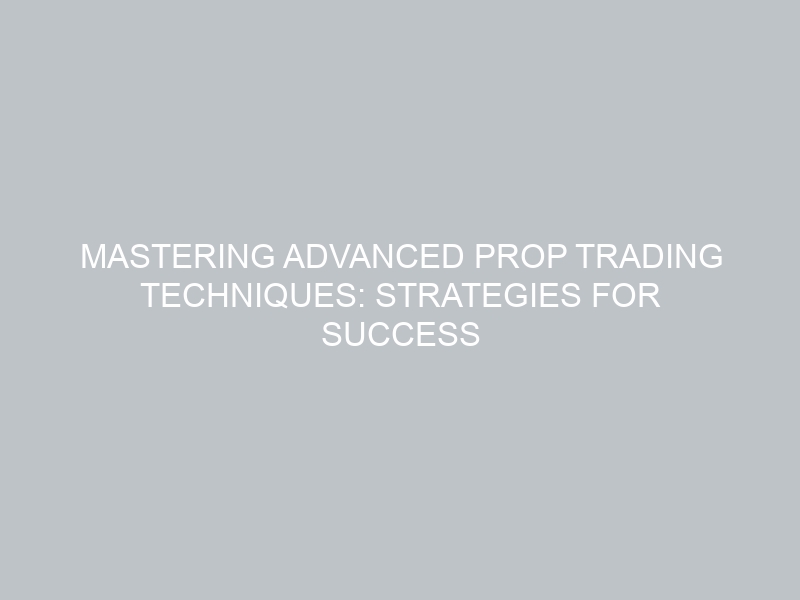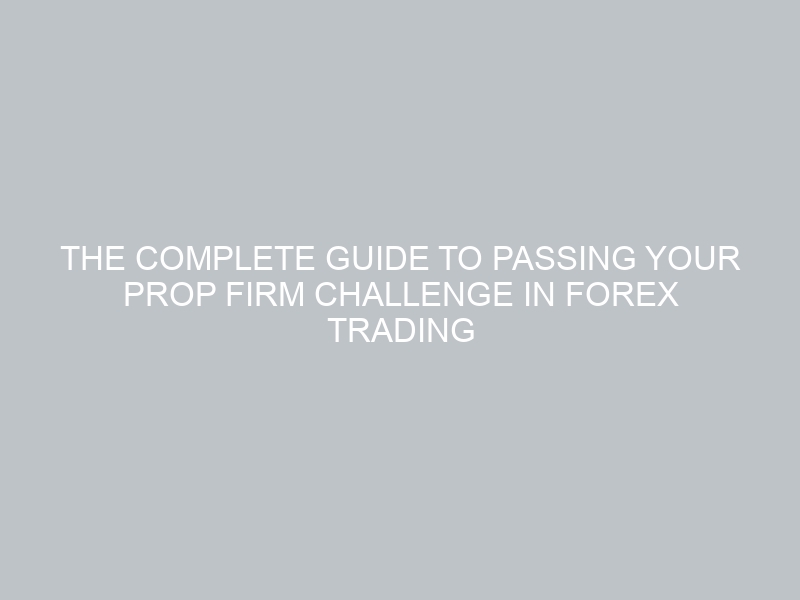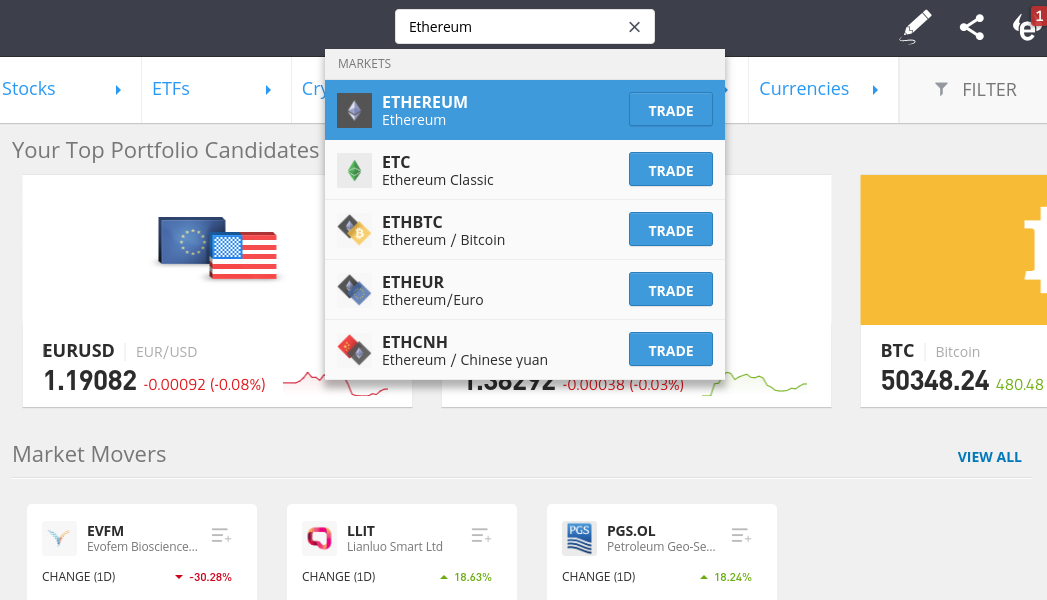Crypto Prop Firms Compared: Finding Your Perfect Trading Partner in 2025
In the fast-evolving world of cryptocurrency trading, finding the right partner can significantly impact your success.
Crypto proprietary firms, commonly referred to as prop firms, present unique opportunities for traders to leverage capital and access advanced trading tools.
This guide outlines essential factors to consider when selecting a crypto prop firm, such as trading strategies, fee structures, and regulatory compliance.
You will discover some of the top firms to watch in 2025 and gain insights on how to align your trading goals with the right firm that meets your needs.
Whether you are a seasoned trader or just starting, this guide will assist you in making informed decisions and enhancing your trading experience.
What are Crypto Prop Firms?
Crypto prop firms, or proprietary trading firms, are specialized entities that engage in trading cryptocurrencies and other financial instruments, leveraging their own capital to maximize returns. These firms utilize sophisticated trading platforms and advanced strategies to capitalize on market trends and the inherent volatility of crypto assets.
By employing algorithmic trading and conducting thorough market analysis, they aim to outperform traditional trading methods and offer innovative investment opportunities in the rapidly evolving cryptocurrency landscape. Aligning with a reputable crypto prop firm can enhance your trading experience and provide access to financial leverage, allowing you to effectively achieve your trading goals.
These firms operate on the premise of proprietary trading, using their own funds instead of client deposits, which facilitates more agile decision-making. This unique model encourages you to develop and implement robust trading strategies, essential for navigating the complexities of the crypto market.
Crypto prop firms often equip traders with valuable resources, including advanced analytical tools, risk management training, and capital to amplify potential profits. The collaborative environment within these firms fosters continuous learning and adaptation, providing a significant competitive edge for traders keen on excelling in the fast-paced world of cryptocurrency trading.
Key Factors to Consider When Choosing a Crypto Prop Firm
When selecting a crypto prop firm as your trading partner, it is essential to consider several key factors that can significantly impact your trading success and overall experience.
Understanding the commission structures, trading fees, and the types of trading accounts available will enable you to evaluate the cost-effectiveness of your potential partnership.
Additionally, assessing the firm’s risk management strategies and the educational resources they provide will enable you to make informed decisions and enhance your trading performance.
Conducting a thorough comparison of brokers and reviewing user feedback will offer valuable insights into the firm’s reputation and customer support, ensuring that you choose a firm that aligns with your trading goals and needs.
Trading Strategies and Tools
Effective trading strategies and tools are crucial for achieving success in the competitive landscape of crypto prop firms.
In today’s fast-paced market, you will find yourself exploring a myriad of options to refine your trading approaches. Utilizing algorithmic trading enables you to execute trades at lightning speed, allowing you to capitalize on fleeting opportunities that manual trading might overlook.
As a trader, you should leverage sophisticated trading tools that provide vital data regarding market dynamics. The combination of market analysis and various trading indicators, such as RSI or moving averages, forms the foundation of coherent and well-informed trading strategies.
A comprehensive understanding of these elements not only helps you develop robust strategies but also cultivates a more adaptable mindset, enabling you to respond effectively to volatility and shifts in market sentiment.
Commission and Fee Structures
Understanding the commission and fee structures of a crypto prop firm is essential for you as a trader aiming to maximize your profit potential. Different firms may impose varying trading commissions and fees related to account funding and withdrawal policies.
It is crucial to evaluate these costs, along with the leverage options offered by the firm, since they directly impact your overall trading experience and return on investment (ROI). A transparent fee structure will enable you to plan your trading strategies more effectively and manage your capital efficiently.
For example, some firms offer lower commissions, making them a more attractive option for frequent traders who rely on high volume to generate profits. Conversely, significant withdrawal fees or lengthy processing times can diminish your profits and hinder timely access to your funds.
Additionally, understanding the types of account funding options available—such as bank transfers, credit cards, or cryptocurrencies—can influence your decision-making and convenience. It is imperative to carefully assess these factors, as they are integral to shaping effective trading strategies and achieving sustainable profitability in the ever-evolving crypto market.
Regulatory Compliance
Regulatory compliance is a crucial factor to consider when evaluating a crypto prop firm, as it ensures that the firm adheres to trading regulations and ethical standards in the cryptocurrency market. A firm that demonstrates strong compliance practices not only protects your investments but also fosters a positive trading environment.
Non-compliance can lead to severe repercussions, including hefty fines, legal penalties, and a loss of investor confidence. Therefore, it is essential for traders to seek out firms that prioritize regulatory adherence and show a commitment to trading ethics.
Additionally, firms that cultivate robust customer support can significantly enhance your trading experience by ensuring that any concerns or inquiries are addressed promptly and effectively.
As a trader, you should be vigilant in selecting prop firms that emphasize transparency in their operations, as this builds trust and minimizes the risks associated with fraudulent activities.
By focusing on these essential aspects, you can make more informed choices and participate safely in the exciting yet volatile world of cryptocurrency trading.
Top Crypto Prop Firms in 2025
As you look ahead to 2025, several crypto prop firms are emerging as leaders in the industry, recognized for their innovative trading platforms and strong performance metrics.
These firms offer a variety of trading accounts tailored to different trading styles and risk appetites, making them attractive options for both novice and experienced traders.
By providing competitive financial leverage and advanced trading tools, these firms are establishing new benchmarks in the proprietary trading landscape, ensuring that you are well-equipped to navigate the dynamic cryptocurrency market.
Company Profiles and Offerings
In this section, you will explore the company profiles of leading crypto prop firms, highlighting their unique offerings that cater to diverse trading experiences. Each firm’s approach to utilizing liquidity providers and integrating trading signals can significantly influence your trading success.
By examining these profiles, you can gain a clearer understanding of the strengths and weaknesses of various firms, enabling you to make informed decisions that align with your trading goals and strategies.
For instance, some firms excel in providing real-time access to multiple liquidity providers, ensuring tighter spreads and enhanced trade execution. This capability allows you to capitalize on market movements with greater accuracy, minimizing slippage and maximizing profitability.
Moreover, the integration of sophisticated trading signals enables you to make strategic decisions based on comprehensive market analysis. By leveraging the insights from these signals, you can identify trending assets and optimize your entry and exit points.
Ultimately, these offerings not only boost your confidence but also foster an environment where industry knowledge and real-time market dynamics converge for greater success.
How to Choose the Right Crypto Prop Firm for You
Choosing the right crypto prop firm is a crucial decision that can significantly impact your trading journey and overall success.
To ensure you make an informed choice, it is important to clearly define your trading goals and needs, which will help you identify firms that align with your objectives.
Conducting thorough research and due diligence—such as exploring user reviews and mentorship programs—is essential for assessing the potential compatibility with your trading style.
Additionally, engaging with the trading community can provide valuable insights and recommendations to guide your decision-making process.
Evaluating Your Trading Goals and Needs
Evaluating your trading goals and needs is a fundamental step in selecting the appropriate crypto prop firm. By clearly outlining your objectives, including your desired risk-reward ratio and trading patterns, you can identify the firms that are best equipped to support your trading experience.
Understanding your trading preferences, such as the level of financial leverage required and your approach to market analysis, will further assist you in selecting a firm that aligns with your trading philosophy and aspirations.
It is essential to reflect on the lessons learned from past trades, including which strategies have proven successful and which have not. Examine factors such as your risk tolerance and how various trading patterns integrate into your overall strategy.
By taking the time to assess these components, you can develop a clearer understanding of what you need from a crypto prop firm, ultimately enabling you to make a more informed decision. This reflective process not only aids in selecting the right partner but also contributes to long-term trading success.
Research and Due Diligence
Conducting thorough research and due diligence is crucial when selecting a crypto prop firm to ensure you make an informed decision. This process involves assessing user reviews, performing a comprehensive broker comparison, and examining each firm’s compliance standards.
To begin, you should actively seek and evaluate user reviews across multiple platforms. Positive feedback regarding user experience can indicate a firm’s reliability, while frequent complaints may raise red flags.
Engaging in broker comparisons can reveal differences in fee structures, trading conditions, and available support services, providing you with a more rounded perspective.
Delving into a firm’s compliance standards is essential; ensuring they adhere to industry regulations adds an important layer of credibility.
By combining these steps, you can confidently narrow down your options and choose a firm that aligns with your trading goals and safety requirements.
Making the Best Decision for Your Trading Success
Making the best decision for your trading success requires careful consideration of various factors, including your own trading goals and the offerings of crypto prop firms. Engaging with the trading community can provide valuable insights and support during your decision-making process, while forming strategic partnerships with reputable firms can enhance your trading ecosystem.
By weighing your options and aligning your choices with your objectives, you can set yourself up for optimal trading success.
Understanding the nuances of each prop firm’s structure and their unique value propositions enables you to make informed choices. Participating in community discussions or forums can unveil various perspectives and experiences that may not be readily available through traditional research.
Exploring strategic partnerships can lead to fruitful collaborations that not only enrich your trading experience but also broaden your learning horizon. This collective wisdom gained from interactions within the community can play a pivotal role in refining your approach, ensuring that your trading journey is both fulfilling and successful.
Frequently Asked Questions
What is a crypto prop firm?
A crypto prop firm, short for crypto proprietary trading firm, is a company that invests in cryptocurrency trading using the firm’s own capital and resources. These firms typically employ experienced traders and provide them with the necessary tools and technologies to make successful trades in the volatile crypto market.
How do crypto prop firms differ from traditional trading firms?
Crypto prop firms differ from traditional trading firms in several ways. Firstly, they focus exclusively on trading cryptocurrencies, while traditional firms may have a variety of assets in their portfolio. Additionally, crypto prop firms often have a tighter risk management strategy and a more agile approach to trading due to the fast-moving nature of the crypto market.
What are the benefits of working with a crypto prop firm compared to trading on my own?
Working with a crypto prop firm has many benefits, including access to advanced trading tools and technologies, a supportive and collaborative team environment, and the potential for higher profits due to the firm’s larger capital. Additionally, prop firms often have established connections and partnerships in the crypto industry, giving traders access to valuable insights and resources.
How do I choose the right crypto prop firm for me?
Choosing the right crypto prop firm is a personal decision and will depend on your individual trading style and goals. Some factors to consider include the firm’s track record, risk management strategy, and the level of support and resources they provide. It’s important to thoroughly research and compare different firms before making a decision.
What can I expect in terms of compensation when working with a crypto prop firm?
Compensation at a crypto prop firm typically consists of a share of the profits made from successful trades. The exact percentage may vary between firms and is often negotiable. Some firms may also offer a base salary in addition to profit sharing, while others may have a more performance-based compensation structure.
How will the crypto prop firm industry evolve by 2025?
It’s impossible to predict with certainty, but many experts believe that the crypto prop firm industry will continue to grow and evolve in the coming years. This may include the emergence of new firms, the integration of more advanced technologies, and potentially even regulatory changes that could impact the way these firms operate.
With the cryptocurrency market maturing, serious traders are increasingly turning to funded accounts to maximize their potential returns. The challenge lies in identifying which best crypto prop firms align with your specific trading strategies and goals. Each firm offers unique evaluation models, account sizes, and profit splits that can significantly impact your trading journey. This post dives deep into a side-by-side comparison of the industry’s leading players, highlighting their strengths, weaknesses, and ideal trader profiles.

































